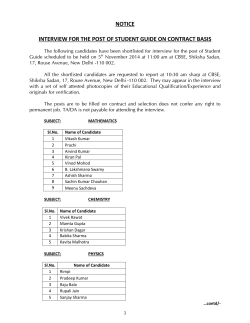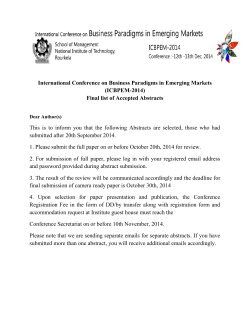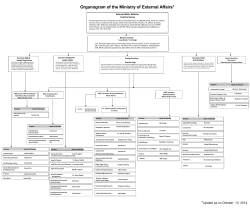
Young Researcher-Talks Himani Singh, Naveen Kumar, A. K.
Young Researcher-Talks ~-12 IN VIVO CONNECTIVE TISSUE REMODELING BY MMP-9 Himani Singh, Naveen Kumar, A. K. Sharma, Amit Kumar and vineet kumar Division of Surgery,lndian Veterinary Research Institute, lzatnagar-243122, Uttar Pradesh, India, Presenting author e-mail: h.singh20 1O@rediffmail.com Matrix metalloproteinases (MMPs) represent a group of enzymes involved in the degradation of extracellular matrix and therefore participate in tissue remodeling. The aim of this work was to analyse the pre.sence of MMP-9 in rabbit blood plasma before and after subcutaneous implantation with native and acellular buffalo pericardium, crosslinked with and without O.So/o Glutaraldehyde (GA) and O.So/o Hexamethylene diisocyanate (HMDC). One part of buffalo pericardium was cross-linked as such while another part was made acellular and then cross-linked. Blood plasma was collected just before operation (O day) and at 15, 30, 60 and 90 days post-operation using heparin (1 0-20 IU/ml) through heart. The MMP-9 was determined by using gelatin zymog- raphy and western blotting. Quantitative estimation of MMP-9 (92 kDa) by ELISA showed that HMDC crosslinked native and acellular groups expressed significantly increase level of MMP-9 as compared to uncrosslinked and GA cross-linked groups. Western blot study observed HMDC crosslinked pericardium groups expressed prominent bands of 135 and 92 kDa (dimeric form of MMP-9) at day15 as compared to zero, 30, 60 and 90 days. Gelatin zymography was also expressed prominent band of 92 kDa in HMDC crosslinked acellular pericardium group as mmpared toGA crosslinked groups. Result was indicating that HMDC crosslinked acellular buffalo pericardium contribute to the in vivo collagen degradation and tissue remodeling. 135
© Copyright 2025











